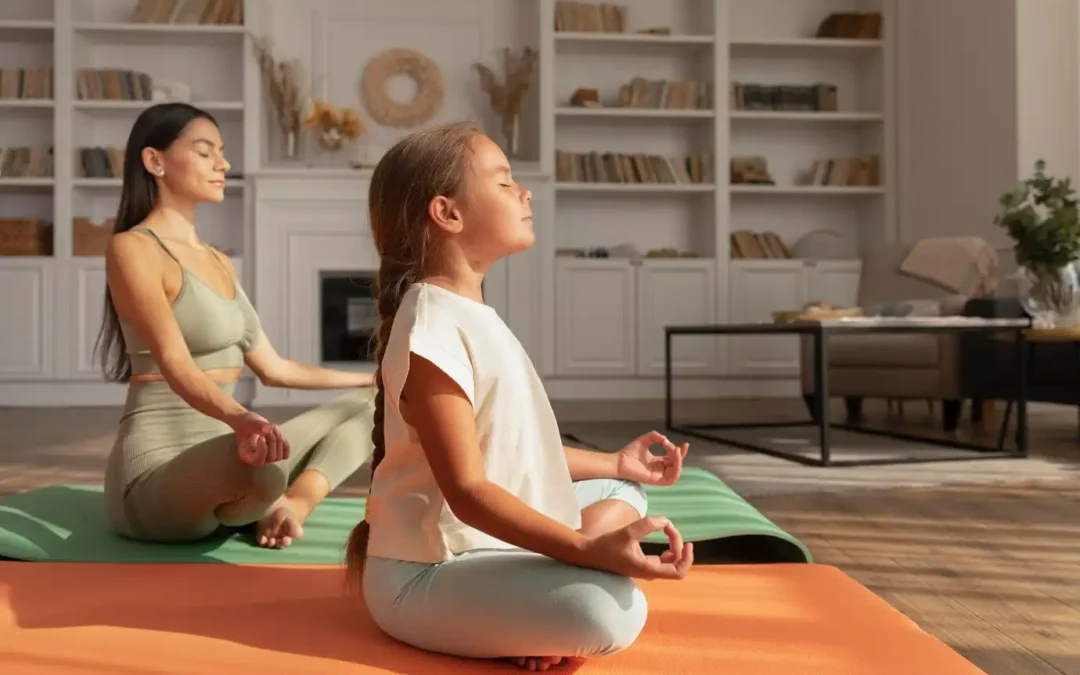Stress and anxiety have become common issues in today’s fast-paced world, affecting millions of people globally. While traditional medical treatments such as medication and psychotherapy remain effective, many individuals seek holistic therapy approaches to complement or replace conventional methods. Holistic therapy focuses on treating the mind, body, and spirit as interconnected components of overall well-being. Here, we explore various holistic techniques that can help manage stress and anxiety naturally.
1. Mindfulness and Meditation
Mindfulness and meditation are among the most effective holistic therapies for stress and anxiety. These practices encourage individuals to stay present in the moment, reducing overthinking and emotional distress. Meditation techniques such as guided meditation, transcendental meditation, and mindfulness-based stress reduction (MBSR) can help calm the nervous system and promote relaxation.
2. Aromatherapy
Aromatherapy involves using essential oils derived from plants to improve emotional and physical well-being. Scents such as lavender, chamomile, and bergamot have been shown to reduce stress and anxiety by influencing the limbic system, the brain’s emotional center. Diffusing essential oils, applying them to the skin, or adding them to a warm bath can create a soothing environment.
3. Herbal Remedies
Many herbs possess natural calming properties that can help alleviate stress and anxiety. Some commonly used herbs include:
- Chamomile: Known for its calming effects and ability to promote sleep.
- Ashwagandha: An adaptogen that helps the body manage stress.
- Valerian Root: Often used to improve sleep and reduce nervous tension.
- Passionflower: Helps with anxiety and insomnia.
4. Yoga and Breathwork
Yoga combines physical movement, breath control, and meditation to create a holistic approach to stress relief. Practices like Hatha yoga, Vinyasa, and Kundalini yoga help release tension, improve flexibility, and enhance mental clarity. Breathwork techniques such as diaphragmatic breathing, alternate nostril breathing (Nadi Shodhana), and the 4-7-8 breathing method can instantly lower stress levels by activating the parasympathetic nervous system.
5. Energy Healing
Energy healing modalities like Reiki, acupuncture, and crystal therapy focus on balancing the body’s energy fields to promote relaxation and healing. Reiki involves channeling universal energy through the hands, while acupuncture stimulates specific points to restore energy flow and alleviate stress. Crystals such as amethyst, rose quartz, and black tourmaline are believed to absorb negative energy and provide emotional stability.
6. Nutrition and Diet
Diet plays a crucial role in managing stress and anxiety. Consuming whole, nutrient-rich foods can support brain function and stabilize mood. Some key dietary considerations include:
- Magnesium-rich foods (spinach, almonds, bananas) to help relax muscles and nerves.
- Omega-3 fatty acids (salmon, flaxseeds, walnuts) to reduce inflammation and support brain health.
- Probiotic foods (yogurt, kimchi, sauerkraut) to promote gut health, which is linked to mental well-being.
- Reducing caffeine and sugar, as they can exacerbate anxiety symptoms.
7. Sound Healing and Music Therapy
Sound therapy uses specific frequencies and vibrations to calm the nervous system. Techniques such as singing bowl meditation, binaural beats, and music therapy have been found to reduce cortisol levels (the stress hormone) and improve mood. Listening to calming music or engaging in sound baths can create a deeply relaxing experience.
8. Nature Therapy and Grounding
Spending time in nature has a profound impact on reducing stress and anxiety. Forest bathing, gardening, and walking barefoot on grass (grounding) can help regulate emotions and restore a sense of peace. Nature exposure lowers cortisol levels and enhances overall well-being by reconnecting individuals with the Earth’s natural rhythms.
9. Journaling and Expressive Arts
Writing down thoughts and emotions can be a powerful way to process and release stress. Journaling techniques such as gratitude journaling, free writing, and affirmations can promote self-reflection and emotional clarity. Expressive arts like painting, dancing, and playing musical instruments provide creative outlets for stress relief and self-expression.
10. Holistic Counseling and Therapy
Holistic counseling integrates mind-body-spirit approaches into traditional therapy methods. Techniques such as hypnotherapy, cognitive-behavioral therapy (CBT) with a holistic focus, and integrative psychotherapy help individuals address stress and anxiety from multiple dimensions. Working with a holistic therapist can provide personalized strategies for achieving emotional balance.
Final Thoughts
Holistic therapy approaches offer a natural and comprehensive way to manage stress and anxiety. By incorporating mindfulness, natural remedies, movement, energy healing, and lifestyle changes, individuals can achieve a greater sense of calm and resilience. While holistic methods can be highly effective, it’s important to consult with healthcare professionals before making significant changes, especially if managing a medical condition. Combining holistic therapies with traditional treatments can create a well-rounded and sustainable approach to stress and anxiety management.
If you are considering holistic therapy or are searching for a holistic therapist, you can visit the As Designed Wellness clinic in Dana Point, California. You can consult a professional at the clinic for help with your medical issues. Call (949) 412-6815 or use this form to make an appointment.

